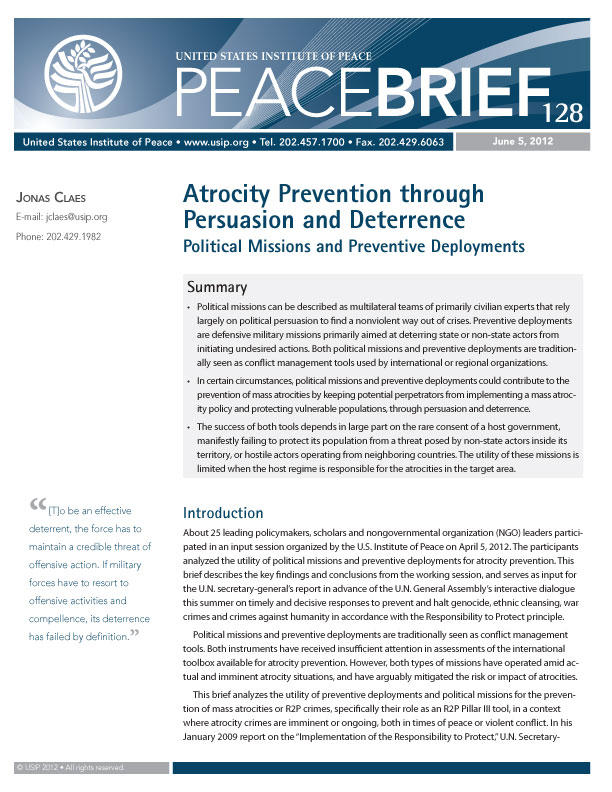Atrocity Prevention through Persuasion and Deterrence
Political Missions and Preventive Deployments
This Peace Brief describes the key findings and conclusion from a working session organized by USIP on April 5, 2012. The brief serves as input for the U.N. Secretary-General’s report in advance of the U.N. General Assembly’s interactive dialogue on Pillar III tools this summer.

Summary
- Political missions can be described as multilateral teams of primarily civilian experts that rely largely on political persuasion to find a nonviolent way out of crises. Preventive deployments are defensive military missions primarily aimed at deterring state or non-state actors from initiating undesired actions. Both political missions and preventive deployments are traditionally seen as conflict management tools used by international or regional organizations.
- In certain circumstances, political missions and preventive deployments could contribute to the prevention of mass atrocities by keeping potential perpetrators from implementing a mass atrocity policy and protecting vulnerable populations, through persuasion and deterrence.
- The success of both tools depends in large part on the rare consent of a host government, manifestly failing to protect its population from a threat posed by non-state actors inside its territory, or hostile actors operating from neighboring countries. The utility of these missions is limited when the host regime is responsible for the atrocities in the target area.
About this Brief
This Peace Brief describes the key findings and conclusions from a working session organized by USIP on April 5, 2012. The participants included 25 leading policymakers, scholars, and NGO leaders with a focus on conflict management and atrocity prevention. The brief serves as input for the U.N. secretary-general's report in advance of the U.N. General Assembly's interactive dialogue this summer on timely and decisive responses to prevent and halt genocide, ethnic cleansing, war crimes and crimes against humanity in accordance with the Responsibility to Protect principle.



